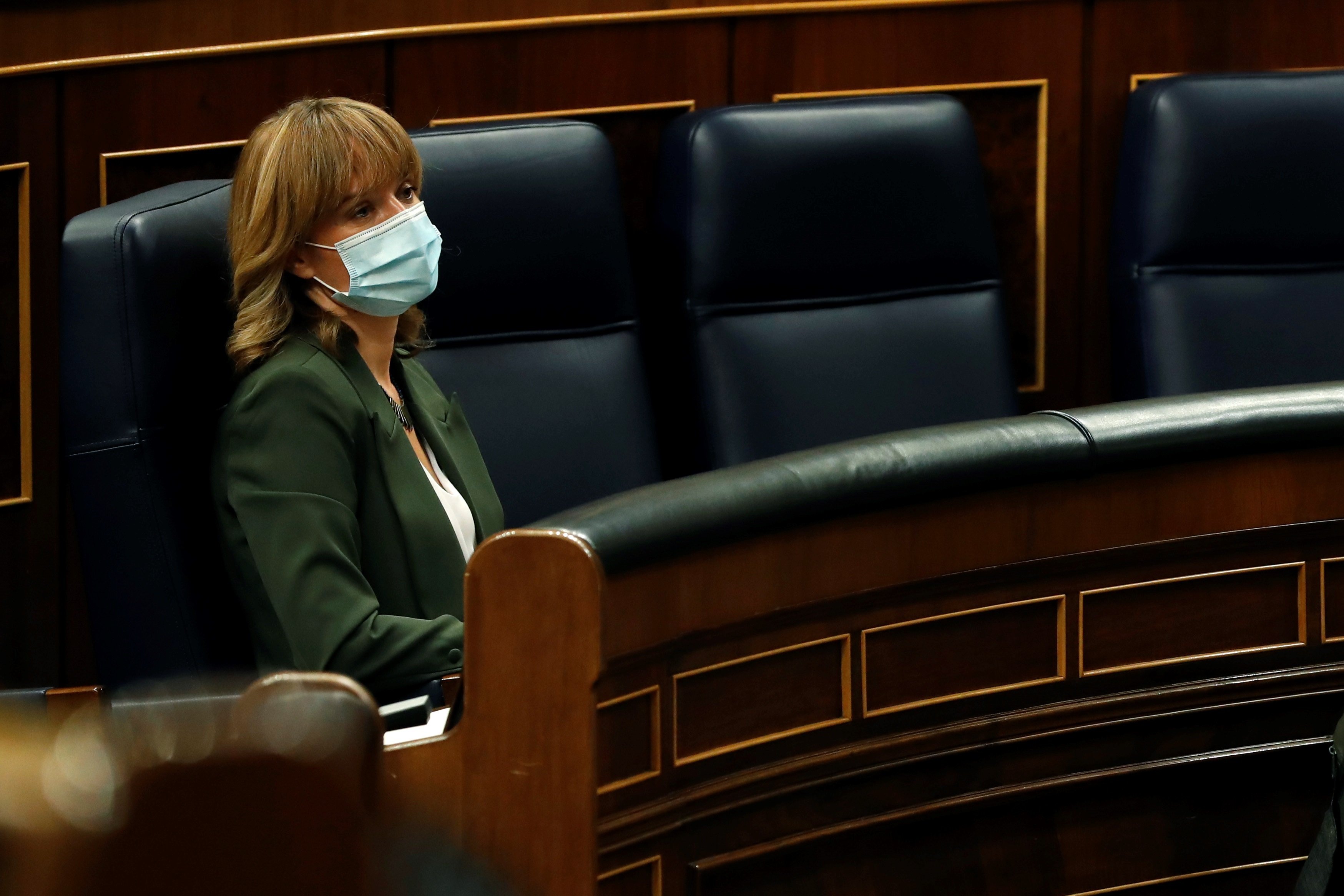On the one hand, the Spanish government washes its hands and affirms that it will not request the execution of the court ruling that attacks the Catalan linguistic immersion policy by forcing 25% of classes to be given in the Castilian language, that is, in Spanish. On the other hand, however, the state itself indicates to the government of the Generalitat what it expects: the sentence is final and must be complied with. This is what Spanish education minister Pilar Alegría had to say on the matter this Thursday in the Congress of Deputies. All this despite the fact that the court decision is connected to an education law, the so-called Wert Law, which is no longer in force, having been replaced by the Celaá Law.
In a brief media conference in the corridors of Congress, the education portfolio holder did not give away very much, stating that she would give "all explanations" in the appropriate place, but one aspect was clear: "For an issue like this, in the face of a final court ruling, there is no debate. It is of compulsory compliance for any public administration." And the minister Alegría reiterated this idea: "Whether it is the government of the Generalitat or any citizen, we are all obliged to comply with final court rulings."
The justice minister, Pilar Llop, had already spoken along the same lines on Wednesday, reminding the Catalan government that the resolution "must be executed because it is final", in statements to the Espejo Público programme on Spain's Antena 3 network. "The procedures for the application of the ruling have their phases, we'll have to wait and see how they are resolved, the resolution of the Supreme Court ratifies the sentence of the Catalan High Court and now we must execute this sentence, because it is final, and it is up to the sentencing court to give the impetus", justified the justice minister. Meanwhile, the Spanish right is going as far to talk about an "educational 155", as Pablo Casado (PP) and Inés Arrimadas (Ciudadanos) put it yesterday, in reference to Spain's constitutional Article 155 under which central government can take over direct rule of an autonomous community.
Aragonès: "Sánchez must defend immersion"
Meanwhile, Catalan president Pere Aragonès has demanded that the Spanish government "commit itself" to defending language immersion in Catalonia. The day after the Supreme Court torpedoed the foundations of the Catalan education system, Aragonès reiterated that the Catalan schooling model "cannot be called into question". From Palma, the president warned Pedro Sánchez's executive that he could not be complicit in the possible undermining of the system. "It is essential that the state comes out in clear defence of the linguistic model and commits itself to supporting the broad consensus that exists in Catalonia," he asserted.
The Catalan Socialists (PSC) decided to stay away from a meeting held last night between the political groups defending the language immersion policy and Catalan minister Josep González Cambray. For decades, the PSC was a strong supporter of the language immersion policy in Catalan schools, but in the last few years the party's position has wavered. The Socialists' partners at Spanish government level, the Comuns, did go to the meeting.

